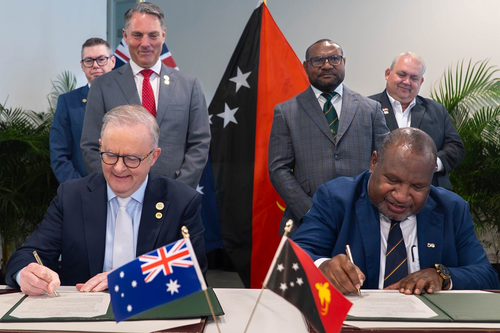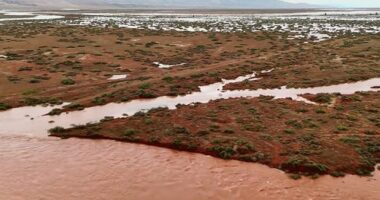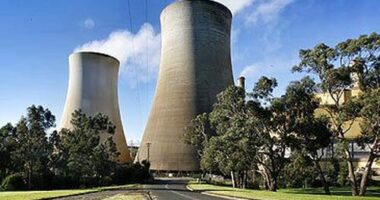Share this @internewscast.com
Australia and Papua New Guinea are on the brink of forming a formal partnership, which will elevate their alliance to the same status as Australia’s agreements with the United States and New Zealand. This move aims to counteract China’s ambitions to increase its influence in the Pacific region.
However, the cabinet has now green-lit the deal, and the Australian government has confirmed the treaty will go ahead.

Marape has mentioned that while he prefers Australia as the primary security ally for PNG, he continues to regard China as an important partner for the country.
“China has been an enduring friend of PNG for the last 50 years,” he said last month.
“This decision serves our common interests and is not intended to impact our relations negatively with others. We hope they will respect our choice of security partners.”
Last month’s postponement of finalizing the PNG alliance followed a similar delay with Vanuatu, but according to Oceania security consultant Blake Johnson, the cabinet’s approval of the Pukpuk treaty indicates that Australia is making progress in strengthening its ties in the Pacific.
“It will be important to remember that fact when thinking about Vanuatu and any other potential future agreements.
“Amid the recent events, Fiji and Tonga have also expressed interest in pursuing more comprehensive agreements with Australia.”
“This is another sign that Australia is not failing in the region.”













